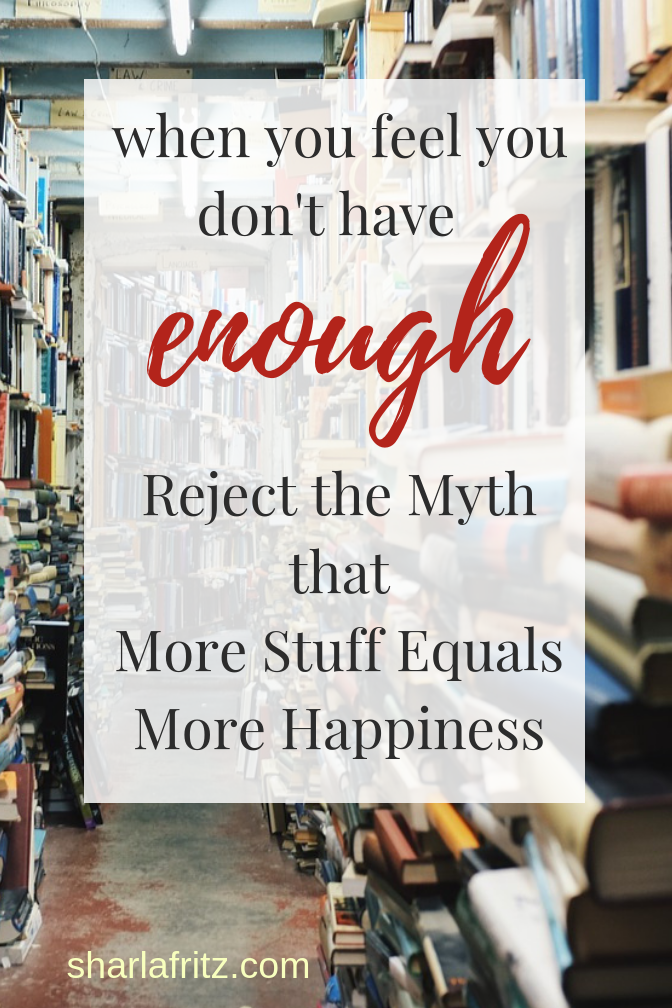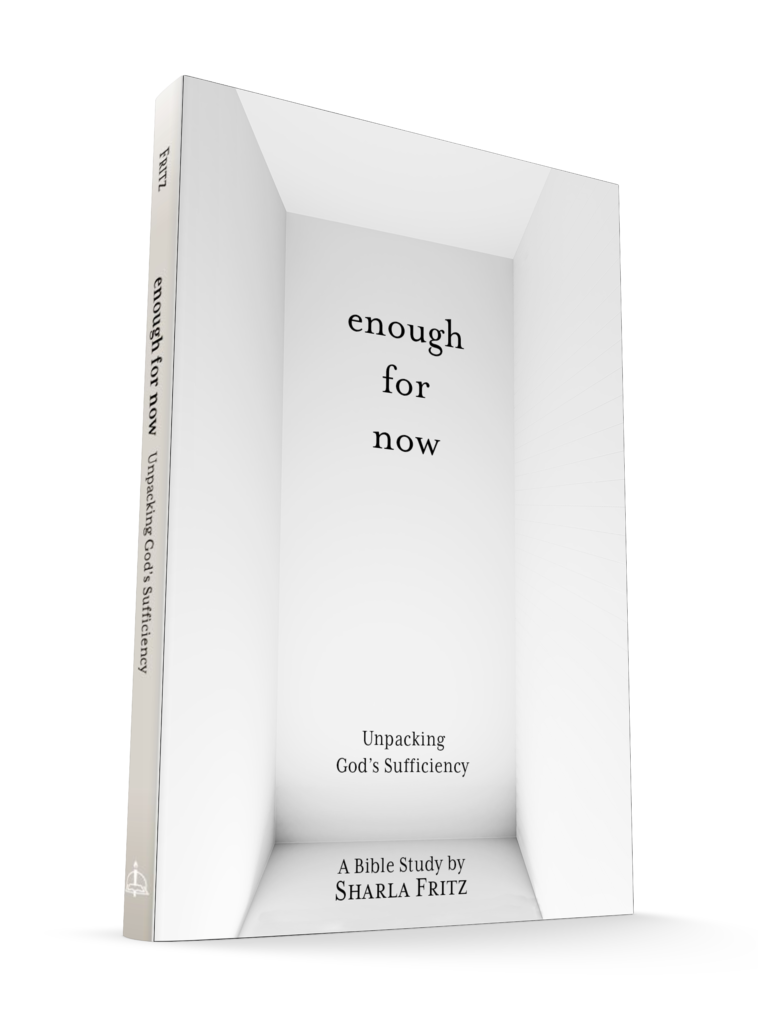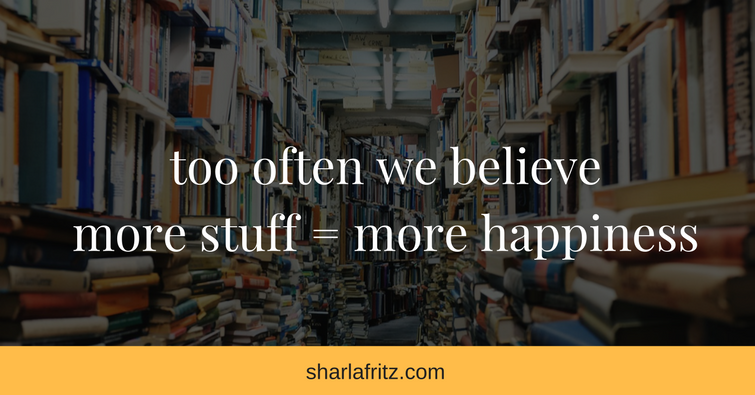Why is contentment so difficult to attain? Why do we always want more? This post is part of a series on finding enough.
A while ago a local charity called and asked if I had any clothing or small household goods that I would like to donate.
Of course, I did.
In fact, I had just finished reorganizing my bookshelves, closets, and cabinets. On the day of the charity pickup, I set out four large boxes of books, two boxes of CDs and records (yes, I still had some old school technology), and five garbage bags of out-of-date clothes and no-longer-loved home accent pieces.
I was so happy to send these things to a new home, but there was one depressing thing about the process: Even after getting rid of all that stuff, my house did not look much different. My closet was still full. My bookshelves still held hundreds of books.
I still had a lot of stuff.
I am not the only one whose house is full of clothes, dishes, games, DVDs, books, and the occasional Nordic Track clothes rack. Judging by the more than 1700 books listed on Amazon on the subject of organizing clutter, there are a few other people who have trouble corralling their belongings. One might even make the case that Americans are addicted to stuff.
So why do we continue to accumulate things? Why do we feel the need to own more and more?
Because society and our human nature tell us this equation is true:
More Stuff = More Happiness.
Using that equation, our minds compute a subset of calculations: A new boat means fun outings on the lake. Money in the bank equals financial security. A big-screen TV means hours of enjoyable entertainment.
And if we buy more and save more and make more and still aren’t happy, we don’t question the equation. Instead, we assume we don’t have enough stuff. We believe that when we add to the amount on the left side of the equation, the right side will also increase.

Because of this we never seem to have enough. Many studies have been done on how much money it takes to make someone feel wealthy and the results have been surprisingly consistent. Almost everyone feels that they would have enough if they had just twice what they have now. The worker making $40,000 would feel rich if he made $80,000. The person with two million dollars in the bank would feel he had enough if he had four million.
We think more will make us happier. And so, we never have enough.
But let’s reject that equation. Because it isn’t true.
Sure, getting the new handbag you’ve been saving for may bring a thrill at first. But it is sure to get scuffed or dirty. Or you see your friend’s new bag and wish you had seen that one first. Suddenly, what you have does not bring happiness.
The author of Hebrews wrote:
Keep your life free from love of money, and be content with what you have, for he has said, “I will never leave you nor forsake you.” Hebrews 13:5
We could also say, “Keep your life free from the love of handbags, shoes, home decor, or whatever else you are basing your happiness on. Be content with what you have. Getting more does not guarantee happiness. But God’s presence and joy is a sure thing.”
Getting more does not guarantee happiness. But God's presence and joy is a sure thing. Share on XNext step: When you find yourself falling for the lie that more stuff equals more happiness, recognize it for the myth that it is. Rest in God’s presence. Ask Him for contentment for what you have.

If you would like to learn more about finding enough, check out my brand new book Enough for Now: Unpacking God’s Sufficiency!
A study of the parable of the rich fool, it will help you discover:
- enough money
- enough stuff
- enough food
- enough relationships
- enough time
- enough of me
You can find out more about it here. And order it here and here!
